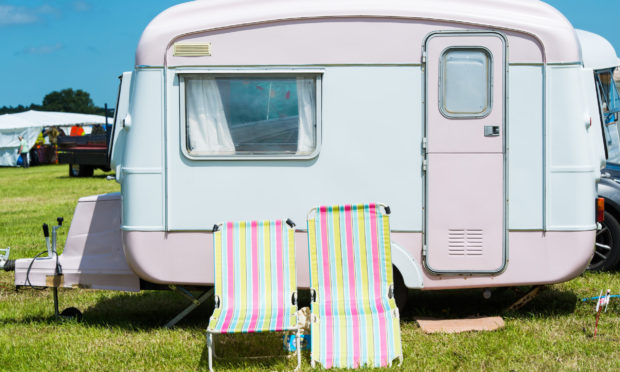Inspired by an old movie, this month I am considering the pros and cons of us moving back to the 1980s as a result of Covid.
At the start of lockdown I wrote about how communities and the roles of cities could change if working from home endured and economic decline took hold.
Like many I probably didn’t have any real idea how serious this all was and was at that point merely speculating. However, there are already signs of change that will endure and will make us feel like we are taking a step into the past.
I certainly expect us to lose air connectivity with the rest of the globe. We’ve been lucky as a small region to have brilliant air links this century but that benefit may be gone. But we might have to expect smaller planes and fewer options from ABZ.
My instincts also tell me it will be harder for us to attract inward investment as a relatively remote location. Unless we can anchor key sectors here, that could provide a real economic challenge.
Finally, my trips to the Big Smoke are now about as regular as they were in the 80s – when a trip to Aberdeen to go shopping was a big deal. However, I don’t want to be doom and gloom; so what could be good about our return to the 80s?
I’ll start with staycations. A recent article in The P&J had a number of hoteliers bemoaning the fact that the staycation boom hasn’t happened as predicted. I wouldn’t have expected one given we are returning to the 80s.
Holidays back then were spent in villages like Cullen in a caravan or, if you were rich, Butlin’s in Ayr. The trips were simpler, outdoor- oriented and not based around attractions, retail or cities. I think that is our region’s opportunity; people will be looking to stay in their own space, in their own bubble and potentially in villages or semi-rural locations. We have lots of that going on and can create more.
Cullen had two caravan parks in the 80s and the village was a mecca for Central Belters, many returning year after year. During the 90s and 2000s that changed markedly. But a caravan park, caravan, tent or lodge is a perfect way to stay within your bubble and have an amazing family holiday. I don’t think the experience will be a drive down nostalgia lane either as for many it will be new and exciting and mixed with the mod cons of today.
We recently went to watch a drive-in movie in Ellon, another taste of the past. BrewDog’s approach to growing a business is stated as not finding a gap in the market but to create a new one. Well maybe they have found a market from the past which might have legs in today’s environment.
The experience was awesome: brilliant sound, great food, and totally safe. I remember seeing drive-ins on American movies of old but never really got it. I do now. There was a nice bit of symmetry too because the film was Back to the Future.
Camping holidays and drive-in movies might have been lost to us as we almost all moved towards city breaks, retail consumerism and so-called luxury but, arguably, so was some of our wholesomeness.
This got me thinking: What else could be out there that we used to do in the 80s, which has been lost to us? Although unlikely to drive the economy if we’re still at this in 2021, expect dog shows, small local galas, summer picnics and a spike in the sale of wetsuits for swims at local harbours.
On a final note I wanted to take a liberty and mention a small piece of hope set against another desperate situation. Recently, a fine young man in our local community died.
Terry Findlay was much loved locally, a fantastic man and well thought of by people who worked with him in the oil industry. Perhaps one the most tragic elements of our world today is our inability to share grief at funerals. However, for Terry the communities of Longside and Mintlaw showed a fitting and remarkable tribute.
On driving back from Peterhead hundreds of people lined the streets and clapped Terry on his final journey. I’ve personally never seen anything like this before but it showed me that communities matter and communities care. I doubt whether as a community we’d have been able to show our collective love for Terry in such a fitting way last year.
Of course this is no silver lining but it shows the best of people and provides just a small bit of hope at a time that is so hard for so many. These gestures matter, they remind us about those lost elements, humanity and humility, and in a small way can help us all get through these very tough times.
James Bream was research and policy director at Aberdeen and Grampian Chamber of Commerce and is now general manager of Aberdeen-based Katoni Engineering











